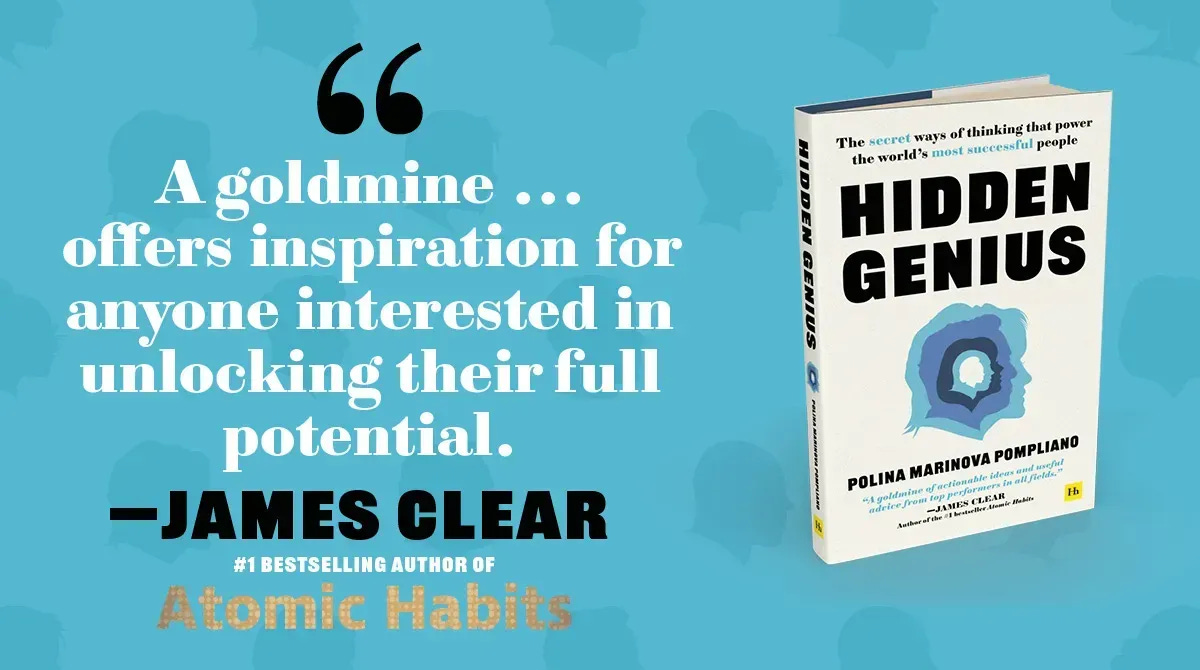The Profile Dossier: Hans Zimmer, the Film Composer Using Music to Manipulate Your Emotions
“At my best, words will fail you because I’m using my own language.”
You know the opening Zulu chant in The Lion King? Or how about the grand orchestra playing as Jack Sparrow sets sail in Pirates of the Caribbean? Or the ominous music in the background as The Joker asks, “Why so serious,” in The Dark Knight?
Hans Zimmer is the legendary composer responsible for those iconic sounds. Zimmer has scored 150 films, including Inception, Interstellar, Gladiator, Sherlock Holmes, Dune, The Last Samurai, Man of Steel, and Dunkirk.
Zimmer’s hidden genius lies in that he’s able to make you feel certain emotions without having the vocabulary to explain why you feel that way. It’s all done subliminally — with music.
“At my best, words will fail you,” Zimmer says, “because I’m using my own language.”
And his own language is totally unorthodox. To create these emotion-laden and memorable sounds, Zimmer has used banjos, bagpipes, buzzing electronics, an old-fashioned orchestra … and an instrument made out of an ostrich egg.
Born in Frankfurt, Germany, Zimmer has loved music ever since he was six years old. He had been exposed to it at a young age since his mom was a classically-trained pianist. Instead of college, Zimmer chose the path of rock & roll.
He performed with The Buggles, the band behind the massive hit Video Killed the Radio Star. He and the rest of the band made history in 1981 with the first music video to air on MTV.
That’s when he began composing music for low-budget films. He got his lucky break when director Barry Levinson hired Zimmer to score the film Rain Man, which won the Oscar for Best Picture of the Year and earned him his first Academy Award nomination for Best Original Score. The Lion King followed, and the rest is history.
He’s been called “one of Hollywood's most innovative musical talents,” but Zimmer doesn’t look at it that way at all.
“I don’t know if I believe in talent,” he says in his Masterclass. “People keep saying to me, ‘Oh he’s really talented,’ or this woman is an ‘amazing talent.’ And then when I investigate a little bit further, it turns out it’s just somebody who works really, really hard.”
Talent, he says, can create one remarkable thing. But can they replicate that success again and again? If they can, that’s not just talent. That’s talent paired with a relentless appetite for hard work.
As someone who has scored more than 150 movies, here’s what we can learn from the most hard-working film composer in Hollywood about creativity, storytelling, and the importance of “committing to the struggle.”
READ.
On how he conjures up ‘otherworldly’ sounds: When he was composing for “Dune,” Zimmer aimed to create sounds that had never been heard before, using a variety of instruments and techniques to create a score that is both unorthodox and provocative. Zimmer spent a week in Utah to tune in to the ‘sound of the desert,’ and even created entirely new instruments from scratch. “I write in surround sound — but it’s not just about the big sound and big screen,” he said. “It’s about sharing something together. Shared dreaming.”
On idea generation: Every craft ultimately comes down to ideas. Zimmer says his favorite meetings are those in which someone says, “I might have the worst idea ever, but…” “That’s the guy you want to listen to,” he says. “Because what he’s talking about is usually something nobody has ever thought of. And that’s the thing you want to listen to very carefully.”
WATCH.
On a look inside his mind: In this 60-minute interview, we find out how Zimmer’s work hasn’t just helped define the characters but has helped the stories of action films and sci-fi epics. Zimmer has been called a “maverick” and a “visionary,” but here’s how he describes himself: “I would define myself as somebody who’s deeply in love with music and deeply in love with movies. And I’m playful. I love to play.” This is a fascinating look into the mind of someone extraordinary at their craft.
On his career arc: After 150 movies, what is the thing that still gets Zimmer out of bed every morning? “I just know I can do better,” he says. This endless pursuit of greatness is what has driven Zimmer throughout his career from Rain Man to Gladiator to Interstellar.
On his composing process: The longest part of Zimmer’s process is the idea-generation portion. It takes so long because he wants to create something he’s never dared to do before. Original ideas take time. Once he has an idea, he starts experimenting with sound until someone says, “We’re running out of time.” At that point, he gets to work and overlays the sound over the scenes.
POLINA’S TAKEAWAYS.
Engage in selfish writing: Many of the successful people I’ve studied have one thing in common: They engage in self-enjoyment. Zimmer says, “The only thing you can write about is the stuff that interests you. It’s completely pointless to try to write for anybody else other than yourself.” To me, this is a lesson about the importance of selfish writing. If you find it interesting, it’s likely others will too. If you’re moved by it, it’s likely it will move others, too. Write what you want to read. Create what you want to use. Compose what you want to hear.
Rules can augment creativity: Before you embark on any storytelling act, Zimmer says you should ask yourself one question: “What are the rules of this story?” As long as you have a vision, you have rules, or guideposts. He says that not having rules is like mashing a bunch of different-colored Play-Doh together: “No matter what you do, you always end up with brown,” Zimmer says in his Masterclass. “And no one’s interested in just brown.” For instance, Zimmer’s rule for scoring the Sherlock film was, “maintain intellectual integrity while having some fun with it.” Once you’ve defined the rules of the game, he adds, it’s more fun to watch the game with someone who cheats in a clever way than someone who plays totally by the rules. In other words, you can break the rules only if you know the rules. (Aaron Sorkin is another storyteller who believes that rules can make you more creative.)
Find your creativity soulmate: No creative pursuit can be undertaken alone. Zimmer has had a years-long "creative marriage” with director and filmmaker Christopher Nolan. Zimmer and Nolan are both storytellers. "The process was conversation. The process was experimentation," Zimmer says. "While [Nolan] was writing, while he was shooting, I was writing, and the music was happening sort of in a parallel universe, really." Nolan and Zimmer have collaborated on Interstellar, Inception, Dunkirk, and The Dark Knight Trilogy, and they have become known as "the most celebrated director-composer duo in Hollywood." Find someone who understands your vision — or "the subtext" as Zimmer puts it — and bring them in at the very beginning of your project. Two heads are almost always better than one.
Borrow ideas from different disciplines: You’ve heard an intense ticking sound in nearly every movie that Zimmer has scored. That’s because he often takes advantage of a musical framework called "The Shepard Tone," a series of ascending notes on a scale. It's an auditory illusion in which the tone gives an impression of an infinitely rising pitch. (You can see it in action here). Director Christopher Nolan liked that the sound felt like it was increasingly building tension, so he wanted to apply this Zimmer technique to screenwriting. "Can you braid together the three storylines in such a way that you create the idea of a continuing rise in intensity?" Some of the most creative people in the world generate ideas by allowing their brains to make connections between two totally different inputs (ie: hearing music and applying the structure to film).
Music cuts across cultural barriers: Because music is not language, it has the power to pierce through various cultures, backgrounds, and geographical regions. Zimmer, who is German, has collaborated with musicians who don’t speak English, but they all communicate through sound. It’s vastly important, Zimmer says, to surround himself with a crew of international collaborators who offer different perspectives and vantage points he would’ve never found in Hollywood.
Understand someone’s essence by listening beyond the words: Zimmer says the world’s greatest musicians have first mastered the skill of listening. Once Zimmer sits down with a director, he asks him to tell him the story. “I listen to his words, and I listen to the story, but I try to listen beyond it as well,” he says. “You’re trying to listen to the subtext. You’re forever listening into the heart of the thing.” This quote stopped me in my tracks because I believe the same is true of all the great writers. Listening with intent is what allows you to capture someone’s essence, accurately tell their story, and most importantly, convey emotion to the reader, listener, or viewer. Listening allows you to absorb the underlying meaning of what they cannot express with words. As Zimmer says, “I try to listen beyond the words. I’m trying to hear the tune.”
Make a commitment to struggle: To do anything worthwhile and original in this world, Zimmer says you should make a commitment with yourself right now. This commitment is, “I am willing to have the courage to sit there and struggle.” Anything that sounds or looks easy was once messy and difficult. Keep this in mind when working on any creative endeavor.
QUOTES TO REMEMBER.
“If something happened where I couldn't write music anymore, it would kill me. It's not just a job. It's not just a hobby. It's why I get up in the morning.”
“If I play you a piece of music, that’s when you can truly look inside me.”
“As the seconds of our lives are ticking away, you have to realize that life needs to be an adventure.”
“I’ve spent my life trying to make things simpler. Because I find ultimately that complicated doesn’t reach the heart.”




Just recently stumbled on your work Polina (through the Notes feature I think) and just love these profiles. Each one seems to be a 3-dimensional story of success, given its depth by charting the inner life of the successful person. So much more effective than a bullet list of competencies one should master in order to thrive. So much gold in this profile of Hans Zimmer, I've got multiple quotes to share forward, but this section on listening - "I listen to his words, and I listen to the story, but I try to listen beyond it as well,” - is particularly magnetic, and I can see you doing this in these profiles, but it seems inexplicable, the "how" of listening this way. There is a tuning and sensing that is beyond the rational frame and it seems to be the foundation of actual relationship with the object (or person) of focus. Just wanted to express my appreciation for these profiles and your process. Looking forward to what is to come!
Thankyou! Keep up the good work. He is my all time fav work-music playlist!